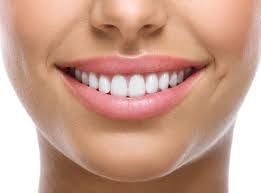Why Try to Keep Your Teeth?
- mcmanigal1
- Dec 20, 2021
- 3 min read

Through the years, I've seen many patients who just weren't motivated to take care of their teeth which really surprises me. Patients who haven't been to a dental office in years show up with abscessed, decayed, and fractured teeth. They may have other symptoms such as infected gum tissue, tons of tartar, and bad breath. When I recommend treatment to save the tooth, they reply "Well, my parent(s) had dentures, so it's my destiny to have dentures, so let's just pull it." I've also met patients who appear to neglect their teeth because they don't like the appearance (and for other reasons that I will explore in later blogs) and subconsciously in hopes of losing them for a better option. Which leads to my question, why should we be motivated to keep our teeth?
Dentures are not for the meek. When all the teeth have been removed and the replacement option is a full plate or denture, there are some very undesirable effects. Some of these effects can be minimized using implant retained dentures, but they are not totally eliminated. Less biting force, food problems, stimulated gag reflex, dissolving bone, and miscellaneous denture problems are the ones I'll cover today.
Reduced biting force. When I think of biting force, I think of Richard Kiel who played Jaws in the James Bond movie "Moonraker" when he bit the steel cable in half with his metal teeth. Also, when I was a kid, I knew a guy who didn't have teeth and he had a badly worn denture. He grabbed a hard apple and took an enormous bite out of it and commenced chewing. To say the least, I was astonished and amused. However, these guys are definitely exceptions, because most studies agree that people who wear complete dentures have 1/4 to 1/6 less biting force than people with natural teeth. A reduced biting force is a big change to people who abruptly lose their teeth because it may eliminate certain foods from the menu. In addition to less chewing force, the mechanism of chewing is different than in natural teeth. With natural teeth, the motion is circular in a side to side motion. With a denture, the motion is mostly up and down to help maintain the stability of the denture.
Food problems. Dentures cover the roof of the mouth resulting in decreased thermal sensation of the food and overall decreased palatability. Food can also get stuck under the denture which can be uncomfortable or it can unseat the denture. Placing adhesives in the denture can help deflect the food, but likely not entirely. So, if you're a foody, complete dentures might not be for you.
Gag reflexes. In some patients, their gag reflex is so bad that wearing dentures is almost impossible and is very disheartening to the wearer. The denture can be shortened adjacent to the soft palate and may help with the gag reflex, but it can be at the cost of denture retention. Trying to deprogram the gag reflex may help in some patients, but others, not so much.
Bone dissolves. When teeth are extracted and dentures are placed, the bone no longer receives the chewing force it did through the natural teeth. This causes the bone to remodel itself and eventually shrink. Most of the remodeling occurs within 6 months of the teeth being extracted and continues at a slower pace thereafter. A newly placed denture will eventually become loose over time and require multiple relines over the years to fit correctly.
Other issues with acrylic dentures is they're expensive, the teeth can pop out, the denture can fracture when dropped, be misplaced, or accidentally thrown away. The denture can also become infected and pass that infection on to the mouth and vice versa.
So, in most everything in life and definitely in dentistry, prevention is the best medicine. Taking care of your natural teeth through brushing, flossing, a good diet and lifestyle choices, and regular dental visits will increase your odds of keeping your teeth and avoiding problematic dentures altogether. Thank you so much for your time!





Comments